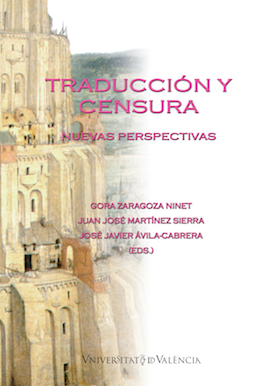Translation, censorship and the construction of literary discourse. La work of editors J. Janés, C. Barral and J. M. Castellet during Francoism
DOI:
https://doi.org/10.7203/qf-elit.v20i0.7529 Abstract
Abstract
Translation and censorship played a central role in shaping literary and cultural life during Francoism. In this paper I evaluate recent contributions to the analysis of their relationship. On the one hand I consider critically Billani’s concept of “textual nationality”, on the other hand the distinction in translated texts made by Rundle and Sturge between alterations due to the intervention of censorship and those due to literary conventions or matters of good taste. Lastly I emphasize the work by three editors: Josep Janés, Carlos Barral and Josep Maria Castellet in renewing the Spanish and Catalan publishing landscape through translations and their relationship to censorship.
Keywords: translation; censorship; textual nationality; publishing world; literary conventions.
 Downloads
Downloads
Downloads
Published
How to Cite
-
Abstract898
-
PDF (Español)867
Issue
Section
License
 Este obra está bajo una licencia de Creative Commons Reconocimiento-NoComercial-SinObraDerivada 4.0 Internacional.
Este obra está bajo una licencia de Creative Commons Reconocimiento-NoComercial-SinObraDerivada 4.0 Internacional.
Authors who publish with this journal agree to the following terms:
- Authors retain copyright and grant the journal right of first publication with the work simultaneously licensed under a Creative Commons Attribution License that allows others to share the work with an acknowledgement of the work's authorship and initial publication in this journal.
- Authors are able to enter into separate, additional contractual arrangements for the non-exclusive distribution of the journal's published version of the work (e.g., post it to an institutional repository or publish it in a book), with an acknowledgement of its initial publication in this journal.
- Authors are permitted and encouraged to post their work online (e.g., in institutional repositories or on their website) prior to and during the submission process, as it can lead to productive exchanges, as well as earlier and greater citation of published work (See The Effect of Open Access).



